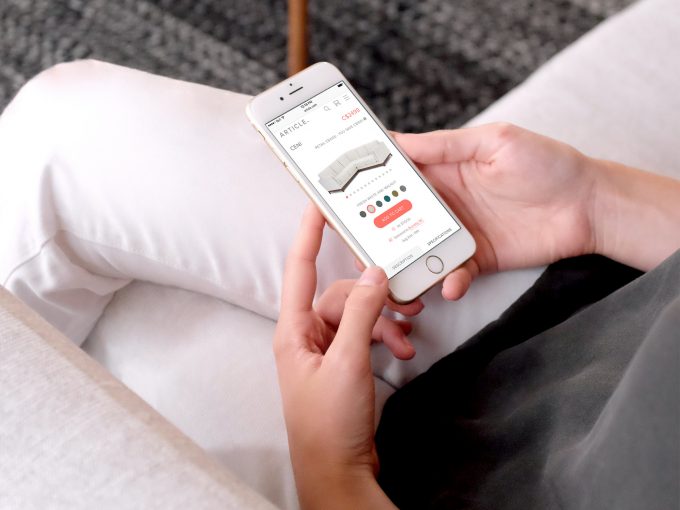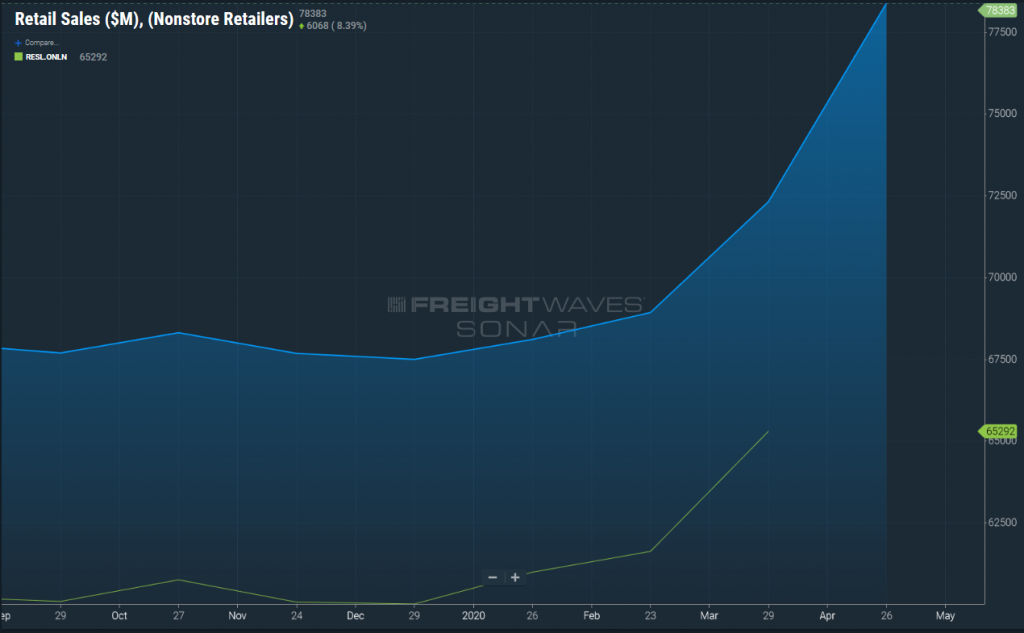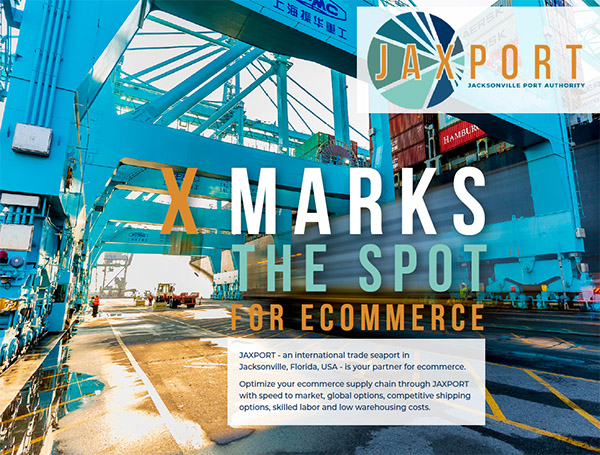Ecommerce Retailers Respond to Consumer Trends during COVID-19
- Home
- >
- Cargo Blog
- >
- Ecommerce Retailers Respond to Consumer Trends during COVID-19

With more time spent at home in response to COVID-19, consumers are increasingly shopping online, driving digital revenue growth for retailers. Within the home furnishings industry, digital revenue grew by 51% in Q1, according to Salesforce data.
Northeast Florida e-commerce operations are experiencing this trend as well. Article, an online furniture brand that focuses on direct-to-consumer sales, reported its highest revenue month to date in April 2020, with sales up 200% compared to April 2019. During the same month, the company saw a two-fold increase in new and repeat customers, according to a recent Forbes story.
With an e-commerce model and in-house logistics management, Article was able to adapt to the growth in real-time and maintain customer satisfaction. Aamir Baig, Article’s co-founder, and CEO has previously shared that fast delivery is an important element of the customer’s experience.
[clickToTweet tweet=”E-commerce operations of all sizes benefit from Jacksonville’s final mile delivery partners, including sort centers from UPS, FedEx, USPS, and Amazon.” quote=”E-commerce operations of all sizes benefit from Jacksonville’s final mile delivery partners, including sort centers from UPS, FedEx, USPS, and Amazon.”]The company’s 319,000 square-foot distribution center (DC) takes advantage of Jacksonville’s e-commerce efficiencies, including direct trade with ports worldwide, three major interstates within proximity of the port and fast access to more than 70 million consumers in the growing Southeast U.S. Article reported in 2019 the company reduced delivery times to the Southeast region by three days since opening the Jacksonville DC.

Article is not the only home furnishing brand choosing to make Jacksonville a part of its supply chain. Wayfair is on pace to open a 1 million-square-foot DC for its large parcel home delivery operation in Northeast Florida. The company has also seen double-digit growth in its sales in Q1 of 2020 – reporting growth across all product categories.
Other retailers growing in the area include beauty products brand Ulta Beauty. Ulta reported e-commerce sales more than doubled in Q1 and the company plans to open a fast fulfillment center to handle online orders in Jacksonville.
“Disruption in the supply chain – like the global pandemic we’re currently experiencing – opens the door for innovation,” said Aisha Eccleston, Director, National Container Accounts. “As BCOs (beneficial cargo owners) evaluate the various tiers of their supply chain infrastructure to mitigate future risk, we can help them put JAXPORT’s network of partners to work to create cost savings and greater efficiencies.”
JAXPORT provides fast access to the growing Florida population, a key market for e-commerce retailers. In addition, e-commerce operations of all sizes benefit from Jacksonville’s final mile delivery partners, including sort centers from UPS, FedEx, USPS, and Amazon.
Northeast Florida features available land and boasts more than 138 million square feet of warehousing and distribution space, including the largest industrial park in the Southeast. Retailers can also benefit from the port’s Foreign Trade Zone (FTZ) No. 64 which allows shippers to delay paying Customs duties until the cargo leaves the FTZ.
Connect with one of JAXPORT’s cargo experts today to learn how you can optimize your e-commerce supply chain through Jacksonville.

From startups to large retailers, more and more businesses are choosing JAXPORT to optimize their ecommerce supply chains.
In this 18-page e-book from JAXPORT, learn how Northeast Florida is meeting the industry’s growing demand for industrial real estate space in close proximity to urban population centers.
